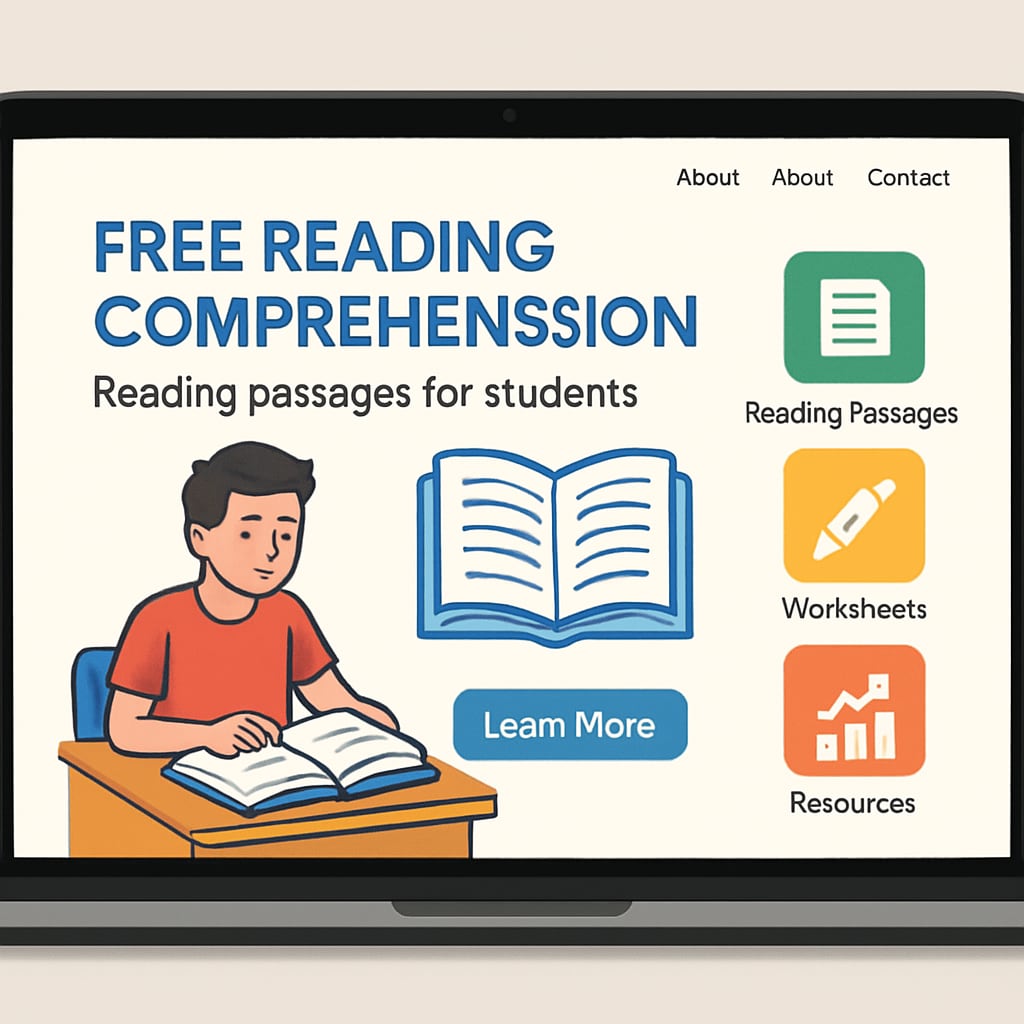For both educators and parents, finding effective yet affordable ways to evaluate reading comprehension is crucial. While systems like Accelerated Reader (A.R.) have gained popularity for their structured approach, their high costs can pose challenges for budget-conscious schools and families. To address this, free reading comprehension test alternatives can be a game-changer—not only providing effective evaluation tools for fourth-grade students but also cultivating their reading interest and critical thinking abilities.
Why Look Beyond A.R. Points?
The Accelerated Reader program is widely used in schools to assess reading comprehension through quizzes and reward systems. However, the reliance on A.R. points often shifts the focus from fostering reading enjoyment to accumulating scores. Many students view reading as a chore rather than a source of inspiration. Additionally, the cost of licensing A.R. software can be prohibitive for some schools, leaving educators searching for budget-friendly alternatives that prioritize both assessment and engagement.

Free Reading Comprehension Test Platforms
Fortunately, several free resources can replace costly systems like A.R. Here are some noteworthy platforms:
- ReadTheory: This online tool provides personalized reading comprehension quizzes for students. Its adaptive algorithm adjusts the difficulty level based on the student’s progress, making it suitable for various grade levels. It also emphasizes skills development over point accumulation. Learn more on ReadTheory.
- CommonLit: CommonLit offers a wide range of reading passages along with comprehension questions tailored to different age groups. Its focus on critical thinking and literacy development makes it an excellent choice for educators. Visit CommonLit for more details.
- Khan Academy: Known for its extensive educational resources, Khan Academy includes reading comprehension exercises that align with standard curricula. This platform is entirely free and accessible to both teachers and students. Explore its offerings at Khan Academy.

Fostering Reading Interest in Elementary Students
Free tools can help with assessments, but the ultimate goal should be to nurture a genuine love for reading among students. Here are practical strategies for achieving this:
- Offer Diverse Genres: Introduce students to a variety of literary genres, such as adventure, mystery, or fantasy, to find topics that resonate with their interests.
- Create a Reading-Friendly Space: Design a comfortable and inviting reading corner in classrooms or at home to make reading feel enjoyable rather than mandatory.
- Encourage Peer Recommendations: Students are more likely to read books recommended by their peers. Organize book clubs or sharing sessions to promote collaborative reading.
- Set Realistic Goals: Avoid overwhelming young readers with high expectations. Instead, set achievable weekly or monthly reading goals to build confidence.
Balancing Assessment and Engagement
While free reading comprehension tests provide an excellent way to evaluate students, pairing them with activities that ignite reading enthusiasm is key. For example, gamified reading programs, storytelling sessions, or creative writing exercises can complement these tools to make learning more dynamic and enjoyable. As a result, students not only improve their comprehension skills but also develop a lifelong affection for reading.
By embracing budget-friendly alternatives and incorporating strategies that prioritize engagement, educators and parents can ensure that reading remains both an educational and joyful experience for elementary students.
Readability guidance: Use short paragraphs and bullet points to summarize key ideas. Distribute over transition words (such as however, for example, as a result) throughout the article to maintain flow and clarity.


